I got 99 problems

Welcome to Ignition Lane’s Wrap, where they cut through the noise to bring you their favourite insights from the technology and startup world.
I got 99 problems, but growth ain’t one
Cloud one hunnid. Bessemer Venture Partners, Salesforce Ventures and Forbes released the eighth annual Cloud 100 list of the world’s best private cloud computing companies. At #4 Canva, which this month turned 10 and was revalued at a respectable $US25.5bn, was the only Australian company to make the list.
Not surprisingly, the list has been overrun by the generative AI boom. OpenAI debuted at #1 – unprecedented in the list’s history. Databricks (#2) overtook Stripe (#3). And, according to Bessemer data, 55% of the Cloud 100 are already incorporating generative AI into their products.
However, reflecting the general state of tech and business worlds, diversity remains lacking. Only six companies on the Cloud 100 list have a woman CEO, down from eight last year.
Safety in numbers. Workplace safety software firm SafetyCulture raised $34m at a $2.7bn valuation, and confirmed it now has over 75,000 businesses and more than 1.5 million workers worldwide using its products. Revenue was up 32% in the last financial year to $132m. The raise serves as a solid reminder from CEO Luke Anear that once you’re on the VC rollercoaster, it is hard to get off:
“I don’t think we were ever fully off [venture capital money],” Mr Anear said. “Trying to wean what’s nearly a $3 billion baby off the milk takes time. But I think you constantly want to assess what is the best way to build the business.”
Riding high. What recession?! Carsales CEO Cameron McIntyre saysbusiness is booming – “Consumers are still looking for similar value cars to what they were this time last year.” The company reported a 43% increase in adjusted profit to $278m for the year ended 30 June. Revenue rose 5% to $781m, with more than half of that generated outside of Australia. Shares are up 37% YTD.Work it. Workplace-collaboration software giant Atlassian beat market expectations, with Q4 FY23 revenues of US$939.1m (up 24% YoY) and a net loss of US$59.0m (down 54% YoY). It has around 262,000 customers. Unlike Zoom and the entire corporate world, Atlassian is standing by its 2020-esq philosophy that “distributed teams are the future of work… The more we lean in here and lead the way, the deeper our competitive advantage.”
Work hard, play hard. Despite being in the midst of defending employee allegations, ecommerce marketing tech firm Rokt is preparing to incorporate as a US company and pursue a 2024 Nasdaq listing. It was last valued at $3.5bn for a secondary share sale last December, led by Tiger Global. TBD if that valuation will hold up.
Exceeding expectations. LaunchVic and Deloitte report that Victoria has out-performed growth expectations. Since 2020, the value of Victoria’s entire ecosystem has almost doubled from $50bn to $91bn and the startup workforce rapidly expanded from 37,000 to 52,000 FTE.
Gobble, Gobble. Liven, which provides restaurant loyalty reward and operations technology, has acquired four tech companies for $152m: Abacus, a Melbourne-based provider of POS systems, online ordering and self-service kiosks; OrderUp, which lets venues offer smartphone table ordering, online orders and hotel room service; Singapore-based food procurement product Zeemart, and US-based payment and data startup Copper.
Liven also wins our “Awkward Turtle Article Title of the Year” award:
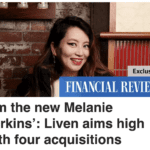
(to be fair, the actual quote in the article says she has aspirations to be Perkins).
I got 99 problems, and securing LPs is one
Cash rules everything around me. VCs are coming out of the woodwork explaining how hard it is for them to raise funds as they battle against each other for a share of limited partner (LP) wallets. With higher interest rates, soft M&A and capital markets, and investor money locked up in existing funds, capital isn’t as readily available as it once was.
Historically, VCs would only officially announce a new fund once the full fund target had been raised, but now “first close” and “coming soon” announcements are common. This month, Main Sequence announced a AU$450m first close of its third fund, Possible Ventures is approaching a first close on a new €60m (AU$101m) early-stage fund (we expect this will close given managing partner Chris Hitchen’s track record), and Side Stage Ventures raised the first $15m of a new $30m early-stage fund.
Related: good piece by Hunter Walk on why many VCs have more pain coming.
Started from the bottom. One VC that appears to be flying fairly unscathed through this time is Blackbird, which has plenty of cash in the coffers after raising $1bn in late 2022 (which also means it probably didn’t deploy insane amounts of money into the 2021 craze), and decent secondary sales underway – including a fresh $150m from selling down a tiny percentage of its stake in Canva, with more likely to come from SafetyCulture in the next year.Founding Partner Niki Scevak is confident we’ve found the bottom of the VC market – an observation that TechBoard’s new report supports.
My $.02: We've already found the bottom. Upwards from here https://t.co/PrAmwNNgxU
— Niki Scevak (@nikiscevak) August 22, 2023
Blackbird has been busy doing deals, including NZ-based Kiki (invite-only peer-to-peer subletting platform), Cyble (unified platform for cybersecurity) and Marqo (an open source vector search engine for AI applications).
Who run the world? Flying Fox Ventures and Jump Start Studio have each received $300,000 in funding via LaunchVic to run programs that offer women startup founders advice, support and networks required to build an MVP and find their first customer.
AgTech money trees. LaunchVic also announced the Hugh Victor McKay Fund, a new sidecar fund for Victorian AgTech startups. The fund was named in honour of the inventor who patented the combine harvester in the 1880s. LaunchVic will co-invest with private investors, who match the government contribution by a minimum of 2:1. There is also an equity-free $50,000 grant available to aspiring agtech founders.
Mo money, mo problems. The AFR slammed crowdfunding platforms like Birchal and Equitise for enabling companies to raise at lofty valuations:
Those with at least $100,000 in annualised revenue, many of which sell consumer goods and generate heavy losses, raised at an average valuation more than 23 times their earnings.
I got 99 pitches, but funding ain’t won
Silicon Quantum Computing (SQC) raised $50m after setting out to raise $130m. SQC has developed the world’s first integrated circuit manufactured at the atomic scale. The circuit, which operates as an analogue quantum processor, gives SQC the ability construct quantum models for a range of new materials, including pharmaceuticals, materials for batteries, and catalysts. SQC is also developing a full stack quantum computer.
Haventec, which developed tech to stop digital identities (usernames and passwords) and data from being stolen and was once valued at $50m, has shut down after failing to raise further capital.
Melbourne food waste recycling startup Bardee cut most of its workforce(around 30 people, who are waiting for outstanding payments), as it struggles to raise more capital. Bardee has been plagued with a host of challenges, including a workplace death, and exec upheaval following a dispute with the founders (which is also reported to have caused lead investor Blackbird to quit the board, just months after investing in early 2022). Rival Goterra recently raised $10m in a bridging round.Handy data from Carta on dilution at each stage of a venture round. Note, this data is from 1,229 primary rounds raised on Carta in 2023 and is US only (although we’d suspect ANZ to be similar).
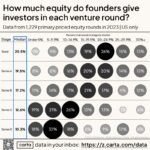
I got 99 scams, but the truth ain’t one
All that glitters is not code. Marketing “AI” Metigy execs fronted up to Federal Court this month, revealing that CEO David Fairfull lured over $20m investment with exaggerated AI technology claims, inflated customer counts and manipulated financial forecasts.
“Did you ever provide false bank statements, that is fraudulently prepared bank statements, to anyone?” Condon asked.
“Yes,” Fairfull responded, asserting legal privilege before each answer so that his words could not be used against him in legal proceedings.
The company’s collapse reveals the darker side of the investment frenzy during the low-interest rate, rapid due diligence era.
Regulators. ASIC is in hot water with the Senate over its handling of investigations, including into alleged insider trading at forensic data analytics company, Nuix. ASIC investigated Nuix CFO Stephen Doyle and brother, Ross Doyle, over the sale of $18m shares… right before the 2021 half-year results triggered a crash in the stock price. In 2022, ASIC found “no evidence” that Ross knew about the results prior to their release, and dropped the case.Meanwhile, a former Nuix VP (who was never interviewed by ASIC) has since divulged that, at the time of the share sale, Ross Doyle: (1) was working out of the Nuix office – swipe card access and all, (2) was “seen in finance staff meetings,” (3) was living with his bro, the CFO, and (4) was “having a personal relationship with one of Stephen Doyle’s direct reports.”
p.s. Fyre festival is back.
That’s a wrap! We hope you enjoyed it.
Bex, Gavin and the team at Ignition Lane
–
Gavin and Bex make it their business to know everything going on in technology, startups and venture capital.
Gavin is the Founder and CEO of Ignition Lane. He has 25 years of experience in the technology industry across startups, corporates and venture capital. Gavin was a founding Partner at venture capital firm Square Peg, an SVP of Product and Technology at Experian, and was one of the first employees and CTO at Hitwise – a venture-backed startup that was acquired for US$240m in 2007.
Bex is a founding Partner at Ignition Lane. Driven by curiosity, her career is the epitome of unconventional – spanning technology commercialisation and operations, corporate law, IT delivery and more. Applying this unique mix of skills and experience, she now works with CEOs and their teams to solve problems, drive growth and move beyond the status quo.



Related posts

Visionary Behind the Bionic Ear Honoured in 2024 Pause Awards Hall of Fame
3 December, 2024

Australia’s boldest innovators announced and new chapter for 2025
3 December, 2024

Top five winners score the most invaluable encounter
19 November, 2024

How Ally Watson is pioneering tech careers for women
15 November, 2024

Breakthrough Insights, Strategies, Creativity and Culture for now
12 November, 2024

Life lessons on ownership and how to keep creative control
6 November, 2024

How to unlock the intangible in brand equity with 4P’s
29 October, 2024

Discover trailblazing Finalists of Pause Awards 2024 in Australia
28 October, 2024

Why Bunnings feels like home: trust, community and genuine care
23 October, 2024

Why creativity and imagination will save the world
22 October, 2024

How Canva transformed a simple idea to become global leader
15 October, 2024

How NASA’s new AR tech will take astronauts to the next frontier
11 October, 2024

How to build authentic workplace culture
7 October, 2024

How to balance business growth with personal wealth
24 September, 2024

A time to dream big with Kristina Karlsson
16 September, 2024

The purpose of gatekeepers in authentic brand storytelling
6 September, 2024

It’s here, a final call to enter the Pause Awards this year
3 September, 2024

Join a free 7-week online learning on the go
3 September, 2024

Pause Awards partners with Ticker for exclusive broadcast coverage
6 August, 2024

Calling Melbourne — a significant player to enter!
6 August, 2024

Calling Hobart — an emerging hub to enter!
26 July, 2024

Calling Canberra — with most daring new ideas to enter!
16 July, 2024

Meet final judges and why they love Pause Awards
15 July, 2024

Meet even more judges and why they love Pause Awards
8 July, 2024

Meet more judges and why they love Pause Awards
5 July, 2024

Calling Adelaide — dynamic centre for innovation to enter
4 July, 2024

Meet the judges and why they love Pause Awards
1 July, 2024

Maybe those shouldn’t have been there in the first place
27 June, 2024

Calling Perth — an emerging innovator to enter!
25 June, 2024

Read a thrilling mid year predictions by the judges
24 June, 2024

Jasmine Batra’s Breakthrough Moment
24 June, 2024

WithYouWithMe’s Breakthrough Moment
24 June, 2024

Paz Pisarski’s Breakthrough Moment
20 June, 2024

UpStock’s Breakthrough Moment
20 June, 2024

Calling Brisbane — a rising star to enter!
19 June, 2024

How to choose the right category for the Pause Awards?
17 June, 2024

Success stories of past Pause winners
17 June, 2024

Your guide to the Pause Awards entry process
17 June, 2024

Understanding the breakthrough question
17 June, 2024

Top 10 tips on how to enter Pause Awards
17 June, 2024

Calling Sydney — a powerhouse of opportunity to enter!
6 June, 2024

Inke’s Breakthrough Moment
6 June, 2024

ReSource’s Breakthrough Moment
3 June, 2024

Brittany Garbutt’s exchange with Paul Bassat on building and sustaining a business empire
21 May, 2024

Entering Pause Awards for the first time?
21 May, 2024

Inside the Pause Awards 2024: A universe of possibility
14 May, 2024

What’s a Pause Awards breakthrough?
14 May, 2024

Marcella Romero’s Breakthrough Moment
9 May, 2024

Music Health’s Breakthrough Moment
2 May, 2024

Chau Le’s Breakthrough Moment
30 April, 2024

Tanck’s Breakthrough Moment
26 April, 2024

Macro Mike’s Breakthrough Moment
23 April, 2024

Birchal’s Breakthrough Moment
18 April, 2024

Tixel’s Breakthrough Moment
16 April, 2024

Redefining success with Angus and Neil of Tanck
15 April, 2024
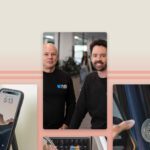
Quad Lock’s Breakthrough Moment
12 April, 2024

Origin Energy’s Breakthrough Moment
10 April, 2024

Mel Stubbing’s breakthrough moment
5 April, 2024

Brittany Garbutt’s breakthrough moment
2 April, 2024

InvestorHub’s Breakthrough Moment
28 March, 2024

Kollektive’s Breakthrough Moment
26 March, 2024

Talking robots and AI Agents, two insane demos
25 March, 2024

Fight Club and Zombie VCs
25 March, 2024

WeMoney’s breakthrough moment
20 March, 2024

Addressing gender inequality with 21.7% discount for female-led companies
8 March, 2024

How Entertainment Brands are winning hearts and minds
5 March, 2024

2023 packed a punch
17 January, 2024

The power of relationships with Dom Pym at Pause Awards Night
19 December, 2023

Six years of celebrating the Australian most ambitious innovators
5 December, 2023

M&A green shoots & scandal central
10 November, 2023

Announcing the 63 ambitious finalists, 3 winners and Pause Awards Night
30 October, 2023

Can optimism and curiosity win the battle with Ai
20 October, 2023

Looking at 100 years from now in Solar, EVs and MedTech
20 October, 2023

What does the Australia’s VC landscape look like in 2050
19 October, 2023

Do we want to live in a Black Mirror world?
17 October, 2023

Four new emerging directors envision sustainable future beyond 2050
6 October, 2023

Visible Founders puts a spotlight on migrant entrepreneurs
28 September, 2023

Always be closing & IPO, no?
24 September, 2023

Strong commitment needed to run tech events in Australia revealed at GEC23
24 September, 2023

iPhone 15 event: everything about Apple’s new product line
14 September, 2023

Discover the colourful world of oral hygiene with Dsmile’s new range
13 September, 2023

How to build a company culture in dynamic market
8 September, 2023

The valuable startup lessons hidden in the film Oppenheimer
7 September, 2023

Meet the new addition to the Judging Board ‘23
4 September, 2023

Advice on Design Thinking for stellar product development
1 September, 2023

How Pause Awards can put your brand on the map
30 August, 2023

Seize the moment: New Extended Entry Deadline
30 August, 2023

Is AI the new frontier of creativity and business
25 August, 2023

Tech legends unite to guide growth and foster innovation
22 August, 2023

The new faces of Pause Awards in business and the product officers
21 August, 2023

Don’t miss out on the last chance to join champions
21 August, 2023

Experience is a new frontier for brands
18 August, 2023

How to grow an idea into a great product
11 August, 2023

Good storytelling and trust will fuel startup and brand growth
4 August, 2023

Twitter to X: a rebrand to challenge tech giants and empower users
4 August, 2023

Discover the latest tech predictions of 2023
1 August, 2023

Elevate your business with Stephen Hunt’s success secrets
31 July, 2023

Lean into digital marketing trends now and in 2024
28 July, 2023

The new faces of Pause Awards from agency and media innovation
25 July, 2023

Hit it, DJ! and other local newsings
24 July, 2023

Female-led ethical fintech Verve raises $3M for Verve Money
21 July, 2023

How to better tune into your success journey
21 July, 2023

Pause Fest’s BREAK–THROUGH SESSIONS will keep you scaling
12 July, 2023

How to choose the right awards for your business
5 July, 2023

The new faces of Pause Awards in strategy and leadership
4 July, 2023

We’re building the community for the most ambitious people
27 June, 2023

It was worth waiting for these unique features
26 June, 2023

Mapping the future of fit and function
23 June, 2023
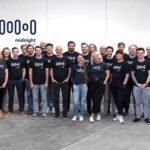
Midnight Health secures $24 million funding boost
21 June, 2023

Championing breakthroughs in today’s business world
21 June, 2023

OpenAI’s Sam Altman says hai
19 June, 2023

Top 5 compelling reasons why you should enter
18 June, 2023

Pause Awards vs Webby’s, Cannes Lions and Effies
18 June, 2023

The new faces of Pause Awards in startup, product and experience
15 June, 2023

A tour of 11 new categories
12 June, 2023

Inside out of Pause Awards
5 June, 2023

Aim for the Diamond: Understanding the Different Categories
1 June, 2023

The new faces of Pause Awards in strategy, growth and innovation
30 May, 2023

Where business recognition gets a paradigm shift
24 May, 2023

Industry leaders predict a transformative year ahead
17 May, 2023

Pause Awards grows to $412 Billion ecosystem
17 May, 2023

Shaking it up with new Investable Score™
17 May, 2023

Tap into your inner powerhouse
5 May, 2023

Life in the fast (tech) lane
24 April, 2023

evee rides the electric wave
18 April, 2023

Big win for the female-led business Circle In, lands $2 Million
14 April, 2023

Designing global empires:
How local brands can conquer the world
10 April, 2023

A passionate pursuit for Healthcare reinvention
4 April, 2023

The game-changing sessions at SXSW Sydney
30 March, 2023

Top AI tools you need to try now
29 March, 2023

A journey to revolutionising healthy school lunches
28 March, 2023

Panic! at the SVB & metrics that matter
16 March, 2023

Call for Entries
opens on 17 May ‘23
1 March, 2023

Startup funding in decline, but early-stage hits peak in Aus
10 February, 2023

Music for wellbeing:
The healing power of sound
20 January, 2023

Deep dive with ChatGPT about Aussie tech ecosystem
17 January, 2023

How it started; How it’s going 2022
17 December, 2022

Learning from mistakes and how to tackle the upcoming headwind
14 December, 2022

Claiming your PauseNFT trophy
13 December, 2022

Women and purpose led businesses take the most wins at Pause Awards ‘22
6 December, 2022

Professor Fiona Wood – The pioneer of ‘Spray-on-Skin’ technique, ReCell.
6 December, 2022

Rise and Demise
28 November, 2022

Let’s have breakfast with champions?
15 November, 2022

82 Bold Finalists Announced for the Pause Awards ‘22
10 November, 2022

Judge Sessions with Lumigo, Tribal DDB and Clipboard Hospitality
24 October, 2022

Judge Sessions with LongView, Fullstack and Art Processors
20 October, 2022
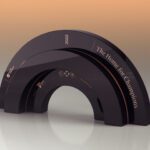
The first look at the new wearable trophy design
13 October, 2022

The Public Voting is open, go get them!
10 October, 2022

Cash to splash & other VC news
2 October, 2022

The Final Deadline Extended to midnight 14 October
30 September, 2022

Judge Sessions with Wavia, SEIKK and MedTech Actuator
26 September, 2022

Pause Awards Wins Australia’s International Good Design Awards for Design Excellence
19 September, 2022

Judge Sessions with Synergy Group, AOK Creative and i4 Connect
16 September, 2022

A word with Birchal’s Co-Founder – Matt Vitale
6 September, 2022

What can Pause Awards bring to your company
30 August, 2022

Google, Synergy Group, Spaces Interactive, Safari and By Jacs judges for Culture categories
24 August, 2022

Loyal VC, Media.Monks, AOK Creative, Storyfolk and Irene Lemon judges for Good categories
15 August, 2022

Fullstack, Lumigo, Netambition, MedTech Actuator and Unhedged judges for Operators categories
10 August, 2022

A word with Heaps Normal’s Head of Brand – Peter Brennan
9 August, 2022

Tribal DDB, We Are Unity, Bullfrog, BeautifulAgile and The Audacious Agency judges for your Excellence
2 August, 2022

Simply Wall Street, IBM, Forestlyn, CFOWorx and Accenture Song are this year Growth Judges
1 August, 2022

Venture snapshot: down but not out
26 July, 2022

Best equity crowdfunding year in Australia – $86m!
22 July, 2022

How to navigate the awards Entry Portal?
14 July, 2022

Startup Genome ecosystem report 2022 review
10 July, 2022

We’re giving a voice to our community with a stylish newsroom design
10 July, 2022

Professor Martin Green
– The father of solar cells
10 July, 2022

Dr John O’Sullivan
– The inventor of modern WiFi
10 July, 2022

14 New award categories under five tracks to highlight the ecosystem success
5 July, 2022

M&A on the rise & the EV SPAC demise
29 June, 2022

Our new vision:
The home for champions
27 June, 2022

Awards LIVE Briefing and Entry Kit
22 June, 2022

The Porsche of awards programmes with community at its heart
21 June, 2022

The Sheet Society
– Success Stories
17 June, 2022

We’re looking for our final few judges – could you be one?
8 June, 2022

Single Use Ain’t Sexy
– Success Stories
1 June, 2022

Afterpay
– Success Stories
24 May, 2022

This is how we celebrate innovation champions
15 December, 2021

The most ambitious and forward-thinking companies in Australia revealed
24 November, 2021
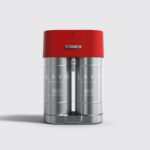
Pause Awards 2021 Finalists Skyrocket
17 November, 2021

Final Deadline is Looming
1 September, 2021

Get to know:
Carolyn Breeze – Judge
24 August, 2021

Get to know:
Will Hayward – Judge
17 August, 2021

Get to know:
Shamila Gopalan – Judge
10 August, 2021

Get to know:
Tom Leyden – Judge
3 August, 2021

Get to know:
Jules Brooke – Judge
26 July, 2021

Get to know:
Jamie Finnegan – Judge
18 July, 2021

Early Entries end This Week
12 July, 2021

Need Help Entering Pause Awards?
6 July, 2021

2021 Award Category Guide
1 July, 2021

How to Enter The Pause Awards in 7 min?
25 June, 2021

Get to know:
Melanie Rayment – Judge
24 June, 2021

Past winners:
where are they now?
24 June, 2021

Pause Awards 2021 opens for entries
9 June, 2021

New categories revealed for Pause Awards 2021
5 June, 2021

Meet the Judging Board 2021
13 May, 2021

The Reign in the North
1 February, 2021

What went into creating Vincent, a hyper-real digital human
21 January, 2020

Dane O’Shanassy on Patagonia’s moral compass and commercial success
6 November, 2019
Pause index

Heatseeker
Company Of The Year, On The Rise, Pioneer

Olly Hoffman
Prodigy
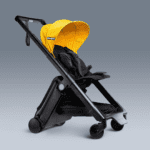
TernX
I Wish I'd Done That, Design First

Jordan Shreeve
Future Builder

Adventus
Out Of The Garage

Katura Halleday
Fresh Blood

Pentanet
Wildfire, Hammer

Ovira
Out Of The Garage, I Wish I'd Done That, Hammer

Melodie
Circular Pioneer

LAVO
Going Green
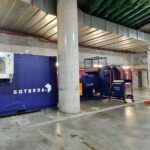
Goterra
Circular Pioneer


